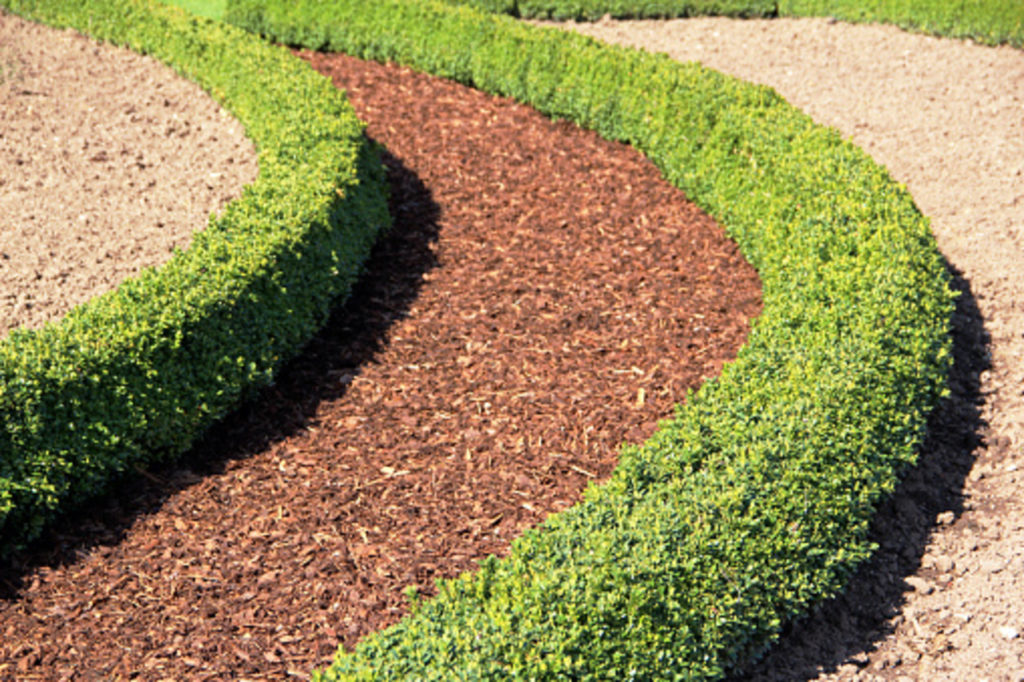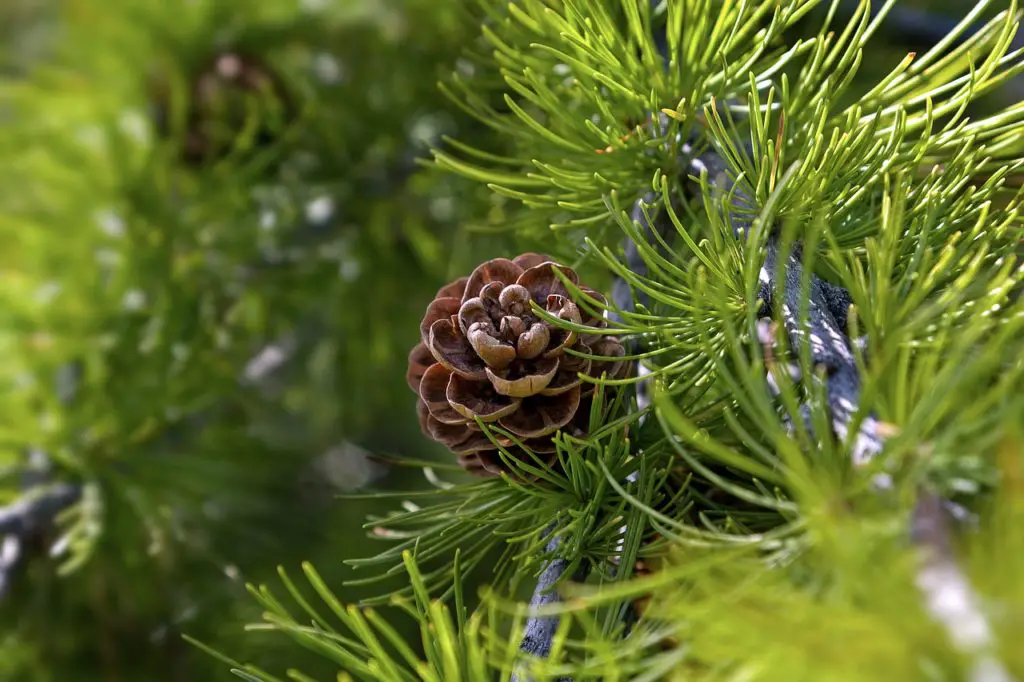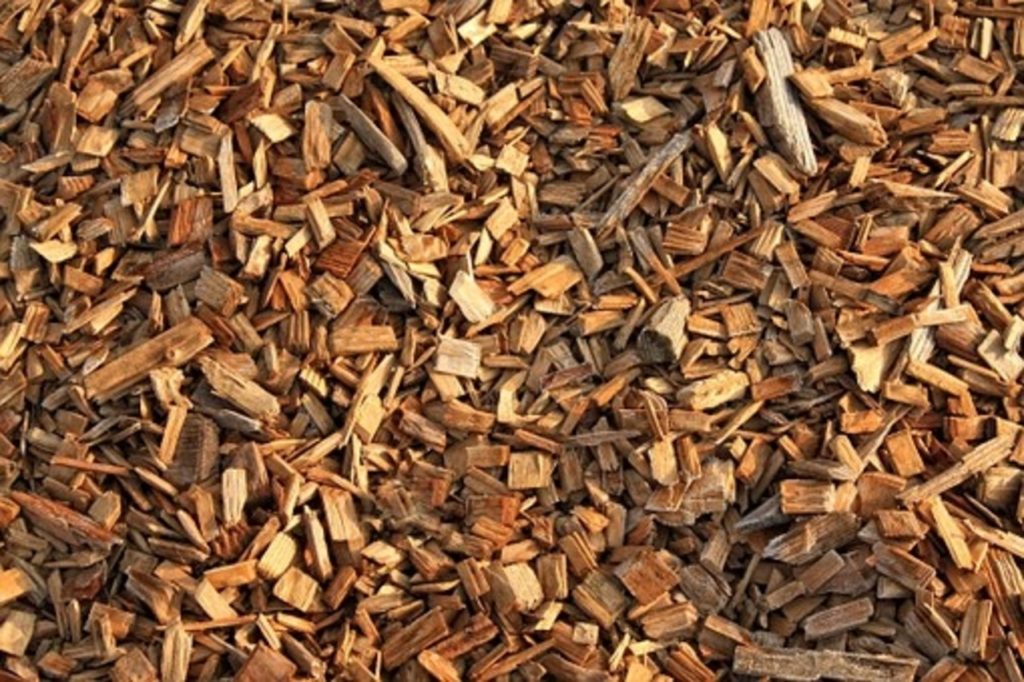Nothing exhausts a gardener like frequent weeding and watering their garden. Even worse is losing plants due to freezing winters and hot summers.
But, there’s a simple solution to such challenges– Mulch! Although there are many types of mulch, many people prefer rubber mulch, wood mulch, and rock.
Aside from zero maintenance, rubber mulch doesn’t attract insects and pests like wood mulch. Rock mulch is non-toxic and is more durable than rubber mulch. Alternatively, wood mulch adds more nutrients to the soil when it decomposes than non-decomposing rock and rubber.
Which is better? If you don’t already know which to choose, here’s a detailed review of rubber mulch vs. wood mulch vs. rock. Keep reading!
Top Review for Rubber Mulch vs. Wood Mulch vs. Rock
Rubber Mulch Pros and Cons
Rubber mulch is a product of old recycled tires. Initially, people used recycled rubber tires to make springy surfaces in children’s playgrounds. But now, rubber mulch is becoming more popular as a better way of recycling old tires.
When you dump the old rubber tires in landfills, they can last as long as 50 years. So, finding a better and convenient use of the tires would help.
Let’s see the pros and cons of rubber mulch below;
Pros
- There’s no need for maintenance with rubber mulch: Here’s why. Even though rubber mulch can last for a minimum of 10 years, it does not fade. So, your project will maintain a new and stunning look year after year.
- Rubber mulch supports healthy plant growth: Water and fertilizers can filter through it. Still, it acts as an insulator over the soil surface from hot or freezing temperatures. This way, it provides a moist and warm environment favorable for plant growth.
- It is a pest and insect repellent: The protective ground cover does not attract ants, termites, and wasps. Therefore, there’s less need for the farmer to apply insecticides that are harsh to plants.
- Rubber mulch is an excellent weed controller: It has an even layer that blocks the light that weeds need to grow. Also, the properties of weed mulch make it hard for weed seeds to settle and grow roots.
- It is heavy and durable: Rubber mulch can withstand harsh weather by not blowing or washing away. Also, it takes a long time to break down into the soil, making it durable. The durability of rubber mulch also equals cost-saving. Thus, you save a lot because you won’t be replacing it each season.
- Rubber mulch does not smell: Unlike most types of mulch that decompose, rubber mulch does not rot. Consequently, rotting emits a foul smell that will pollute a homestead/garden.
Cons
- Rubber mulch is highly flammable: Even though wood mulch burns, rubber burns hotter, faster and produces a thicker dark cloud. Also, rubber mulch fire is hard to put out.
- It has no nutritional benefits to the soil: Rubber mulch allows water and fertilizers to pass through it for proper plant growth. But, its synthetic nature adds nothing essential to the soil.
- The old tires that make rubber mulch contain harmful chemicals: Rubber mulch contains chemicals and trace metals that may leak into the ground. The toxicity of these harsh chemicals is poisonous and causes stunted plant growth.
- You will have to remove weeds by hand because you can’t till rubber mulch into the soil: So, you will have to lay weed fabric over the earth for weed prevention. After that, you can apply rubber mulch on the ground.
Wood Mulch Pros and Cons
Wood mulch is organic and consists of recycled wood matter. The wood matter is usually chopped up or shredded into tiny wood chips ready for spreading over the desired area. Usually, the wood matter features trimmed branches, wooden pallets, leaves, and tree bark.
Pros
- Wood mulch is biodegradable. Because it is organic, wood mulch quickly decomposes and adds nutrients to the soil. The soil absorbs the nutrients which aid in excellent plant growth.
- It has weed suppression abilities. A thick layer of wood mulch will block light from reaching the weeds leading to stunted weed growth.
- As a natural by-product, wood mulch is non-toxic. It causes no harm to the soil or near plants. Better still, it comes in a variety of colors that are from vegetable-based dyes and non-toxic.
- Wood mulch is easy to maintain. Due to its innate nature, it’s safe to till it into the soil when weeding. Therefore, you won’t need to pull out the weeds by hand.
- If you prefer a natural look, wood mulch is a perfect choice for your garden.
- Wood mulch does a better job of retaining water in the soil. It prevents water evaporation from the plants during hot days. Better still, a layer of wood mulch will inhibit the winter shock to plants.
- It is effortless to work with wood mulch because it is lighter than other types of mulch. You can carry many bags of shredded wood chips into the garden for mulching by yourself.
Cons
- Wood mulch attracts pests and insects, and fungus. Insects such as termites and carpenter ants eat wood. Ultimately, these insects can be destructive, especially if they decide to move into the house from the mulch. The moist environment from wood mulch also leads to fungus growth that infects the plants.
- Maintaining wood mulch is also expensive. Because it decays quickly, you will need to replace it after a short time. Furthermore, wood absorbs nitrogen from the soil to facilitate the decomposing process. This means that you will need to feed the soil with more nitrogen to compensate—hence, the extra cost.
- Wood mulch can slow plant growth. The absorption of nitrogen from the soil may affect vegetables and other plants that highly need it for growth. So, it is not advisable to use the wood mulch in vegetable gardens.
- Treated wood is toxic. Recycled wood mulch from treated wood containing creosote or arsenic will harm the plants.
- Wood mulch is lightweight hence does not prevent erosion. Wind and rain are likely to blow and wash away wood mulch leaving your plants bare without protection.
- Its biodegradable nature creates a perfect environment for weed growth. When wood mulch decomposes, it provides nutrients to the soil, aiding plant growth.
- Loses color: Due to extreme and prolonged sun exposure, wood mulch loses its color.
- Wood mulch can be a fire hazard. It doesn’t only require you to start a fire, but even extreme hot temperatures can make it burn when it’s dry.
Rock Pros and Cons
Before, no one thought of using rocks as mulch. But thanks to changing times, rock mulch is gaining popularity due to its several benefits to plants.
Rock mulch comprises decorative pebbles. These stones act as ground cover on gardens, ponds, flower beds, fire pits, around trees and pools. You can source them freely from rocky areas or river beds.
Pros
- Rock mulch needs zero maintenance: After installing them as desired, you won’t need to spend time keeping them in place.
- It’s an effective method of controlling weed when appropriately installed: So, it would be best to place rock mulch on top of landscape fabric to achieve excellent weed control.
- It prevents fungi growth and pest invention: Rock mulch does not retain water, so there’s no room for fungi to thrive. Also, pests and insects don’t feed on rocks, making it a less favorable environment for habitat.
- Rock mulch has an aesthetic application: Rock mulch provides an appealing setting because of the wide range of colors, shapes, sizes, and textures. Still, you have a variety to choose from to match your needs and preferences.
- It’s the best at preventing erosion: Rock mulch withstands strong winds and heavy rains, thereby protecting your plants. Besides, what do you think people use to build gabions?
- Rock mulch is inflammable: It’s excellent in areas that are prone to wildfires. So, you are safe to use rock mulch as close to your structures as you like.
- Rock mulch is highly durable: Rock mulch will last even longer than your life; unless you want to change and use a different type of rock mulch. Usually, rock mulch is free to access. You can easily access as much as you wish anytime from river beds or rocky areas. But, you can still buy rock mulch in the regions that are hard to find or if you are looking for unique ones.
- It acts as an insulator to plants that are sensitive to cold temperatures: Rock mulch traps warmth in the soil to keep the plants alive during winter.
Cons
- Rocks mulch does not decompose: Therefore, it provides the plants with no nutritional value. This way, the farmer may require buying extra feeding for the plants.
- It’s challenging to install rock mulch due to its heavy weight: Fetching and carrying rock mulch will require extra effort to accomplish desired results for a large garden. It can also be tedious to remove rocks because you must do it by hand.
- High temperatures: While it maintains warmth for sensitive plants, it can retain unhealthy temperatures. Trapping heat from the sun leads to harmful heat levels for most plants.
- Rock mulch can cause soil to be more alkaline: So, acid-loving plants won’t thrive in rock mulch because of alkaline soil.
Final Word
When deciding between rubber mulch vs. wood mulch vs. rock, you must consider many factors.
Most importantly, it would be best to establish the problems you need the mulch to solve. Additionally, your budget and preferences in terms of design play a significant role in your decision. Perhaps, one is better than the others in certain areas, or you’ll need to see each in different locations.
In caring for your garden, your capacity for knowledge and imagination is your only limitation. Generally, the three types of mulch are effective for homeowners.


